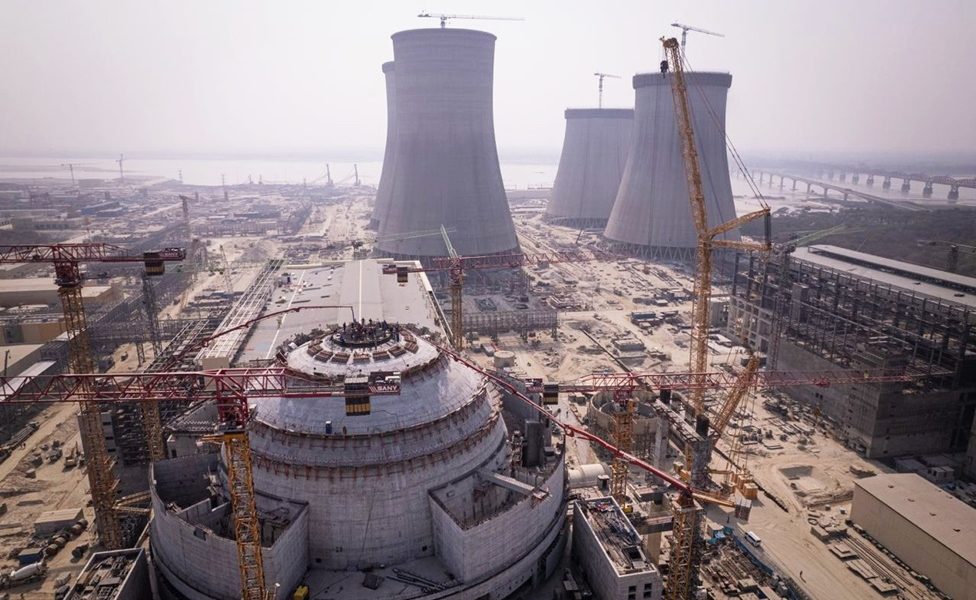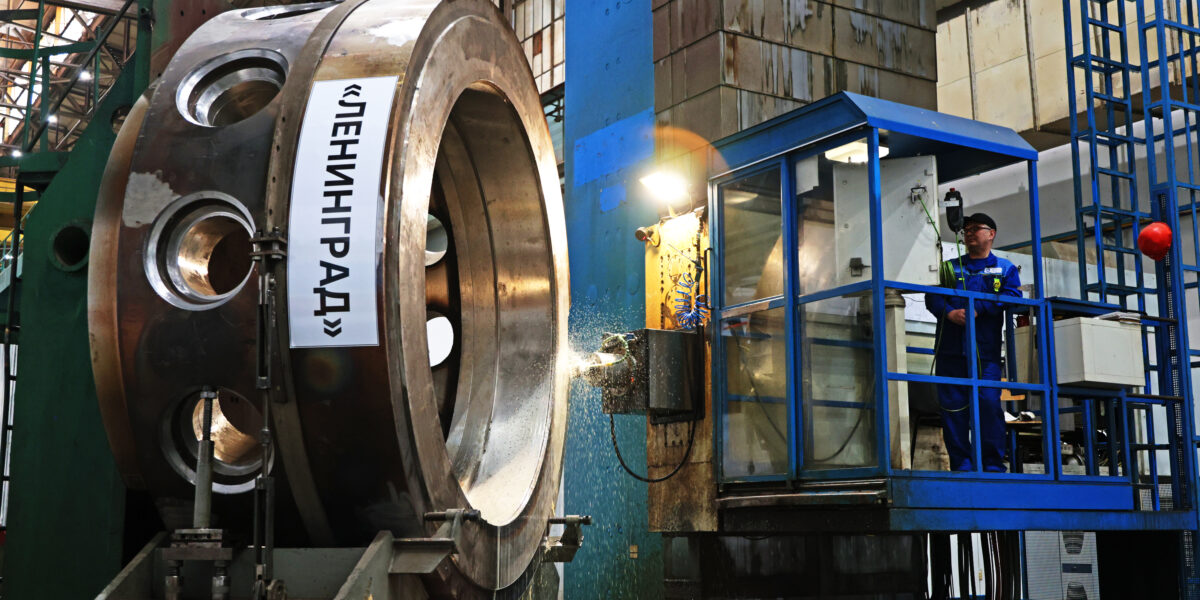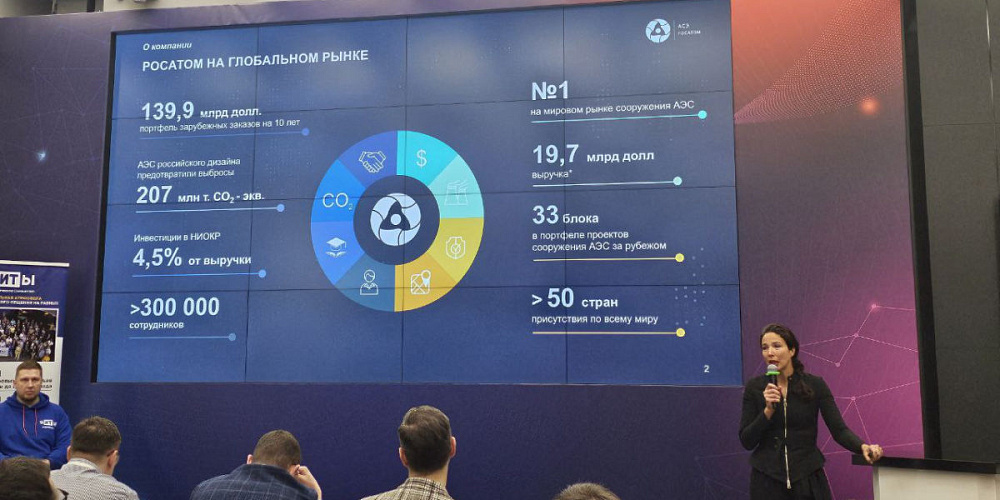Alexey Likhachev, Director General of State Corporation Rosatom, toured the nuclear plant construction site and inaugurated the new Training and Production Complex (TPC), which will oversee training, qualification assessments, quality control, and workforce monitoring for the project.
Alexey Likhachev,
Director General of State Corporation Rosatom, toured the nuclear plant
construction site and inaugurated the new Training and Production Complex
(TPC), which will oversee training, qualification assessments, quality control,
and workforce monitoring for the project.
The inauguration
ceremony was also attended by Mahmoud Esmat, Egypt’s Minister of Electricity
and Renewable Energy; Andrey Petrov, First Deputy Director General for Nuclear
Power at Rosatom and President of JSC Atomstroyexport (Rosatom State
Corporation Engineering Division); and Dr. Sharif Helmy Mahmoud, Chairman of
the Board of the Egyptian Nuclear Power Plants Authority.
The TPC spans
over 5,000 square meters and includes a production workshop, full-scale
simulators, a wide array of real thermal-mechanical and electrical equipment
samples from leading Russian manufacturers, as well as classrooms for
theoretical instruction and computer-based training. Operations at the complex
are based on Russian standards for personnel training in the nuclear sector,
while also being adapted to meet Egypt’s national requirements. What makes this
complex unique is that all local specialists–
regardless of their future
roles– will undergo a common basic training program here. Over the course of El
Dabaa NPP’s construction, the TPC is expected to train and upgrade the
qualifications of approximately 20,000 workers involved in construction,
equipment installation, and commissioning activities. The complex will also
serve as the site for initial assessments of new specialists’ skills and
competencies.
The TPC supports the shared objective of building a workforce capable not only of contributing to construction, but also of ensuring the future safe operation of the nuclear power plant.
“High-quality personnel training is the foundation for the efficient and reliable operation of any nuclear facility. We are confident that joint efforts and the transfer of expertise will foster the development of national competencies in nuclear energy and lay a solid foundation for continued successful cooperation between Russia and Egypt,” said Alexey Likhachev, Director General of State Corporation Rosatom.
During the visit, the delegation reviewed progress across the El Dabaa NPP construction site, and visited key project facilities. Full-scale construction and installation work is now underway on all four power units of the El Dabaa NPP. At Unit 1, core structures on the nuclear and turbine islands are advancing steadily, with reactor vessel installation slated for late 2025. Unit 2 is progressing through reinforcement of the third tier of the inner containment. Meanwhile, Units 3 and 4 are focused on foundational work for the reactor buildings. The project currently employs more than 24,000 workers — most of them Egyptian nationals. The delegation also toured the newly built residential and social infrastructure for the workforce, including a pharmacy, retail shops, outdoor sports areas, a modern sports centre, and the “Territory of Childhood” education and recreation complex.
El-Dabaa NPP is the first NPP in Egypt. It is being built in the city of El-Dabaa, in the Matruh province on the Mediterranean coast, approximately 300 km. north-west from Cairo. The El-Dabaa NPP consists of four 1200 MW power units equipped with Russian VVER-1200 pressurized water reactors of the latest third generation; these reactors are state-of-the art technologies that have been successfully operated at reference NPPs. El-Dabaa NPP is being constructed in accordance with the package of contracts, which entered into force on December 11, 2017. The Russian side will not only build the nuclear power plant, but also supply nuclear fuel throughout the entire El-Dabaa NPP operating life in accordance with its contractual obligations. The Russian party is expected as well to assist Egyptian partners in training NPP operating personnel at the stage of operation and maintenance during the first ten years of the NPP operation. Besides, under a separate agreement, the Russian party will build special storages and will supply special containers for storing spent nuclear fuel.
Rosatom's Engineering Division includes the nuclear industry companies: Atomstroyexport (Moscow, Nizhny Novgorod, offices in Russia and abroad), Atomenergoproekt United Design Institute (Moscow, Nizhny Novgorod, St. Petersburg design institutes, offices in Russia and abroad, survey facilities), and construction subsidiaries. The Engineering Division ranks first in the world in terms of its order portfolio and the number of nuclear power plants being simultaneously constructed in various countries. The Division gets approximately 80% of revenues from foreign projects. The Engineering Division implements projects on the construction of high-power NPPs in Russia and other countries. It provides a full range of EPC, EP, EPC(M) services, including design management and design, and develops Multi-D technologies to manage complex engineering facilities. The Division relies upon the achievements of the Russian nuclear power industry and innovative state-of-the-art technologies. ase-ec.ru




